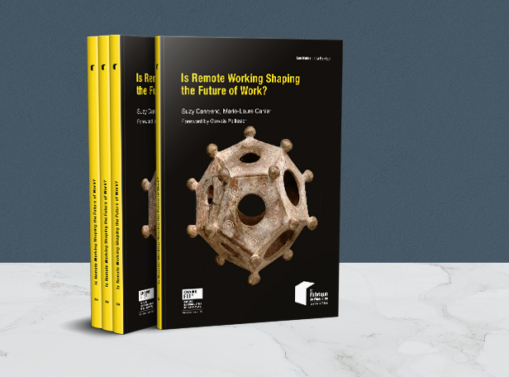Social Representations of Work Caught Up in a Storm
The crisis impacting work and education is also about words: manual labour vs intellectual work, technical knowledge vs general knowledge, vocational training vs general training, blue-collar worker vs white-collar worker: all of these words designate categories that are no longer operable. This note looks back at how these representations originated and took shape.
“Me, a factory worker? Never!” is a common reaction from young people today. They would rather do anything than work in a factory, synonymous with unemployment, arduous conditions, the minimum wage and low social status. Yet these representations are totally at odds with reality.
Old-style factories are giving way to a hyper industry dominated by sophisticated machines and robots controlled by complex software systems that need to be supervised by people. To access these skilled positions requires extensive technical training. Factories no longer have jobs to offer low-skilled workers, who instead move into the service industry – call centres, fast food, logistics, retail and human services – with its abundant need for interchangeable labour in often insecure positions.
The school system has not yet digested this shift in the working world. It encourages young people to follow a general high-school syllabus that delivers an increasingly valueless diploma, and then go to university. Many of those who leave without an occupation, or even a degree, end up frustratedly joining the ranks of the new service proletariat. As for the vocational high-school syllabus, initially designed to prepare students for an occupation, it remains unattractive and struggles to fulfil its mission. Having become too general to train qualified specialists, it is all too often considered as an easier route for pupils with low grades in abstract academic subjects. The result is jobless young people and manufacturers that struggle to fill vacancies.
The crisis impacting work and education is also about words: manual labour vs intellectual work, technical knowledge vs general knowledge, vocational training vs general training, blue-collar worker vs white-collar worker: all of these words designate categories that are no longer operable. Contemporary France is undermined by these binary representations.
This note looks back at how these representations originated and took shape. How did terms like “manual labour”, “general knowledge” and “career guidance” become so distorted as to lose all connection with their original meaning? Endlessly repeated, they have become so hackneyed that teachers, parents and students unthinkingly use them incorrectly: “manual labour” relates to students unsuitable to follow the general syllabus; “career guidance” disguises a process leading to exclusion from that same general syllabus; as to “general knowledge”, implicitly associated with the humanities, it has become the opposite of all things technical.
Which historical, political and intellectual events lumped these words with their current connotations? Is the phenomenon restricted to France? Before French people can even begin to reconcile themselves with the technical world and industry, it is important to understand what drove them away. Words, as conveyors of images, are key to transforming the representations we have maintained for almost two centuries.
To order the Note in paper version, please go to the Presses des Mines website.




